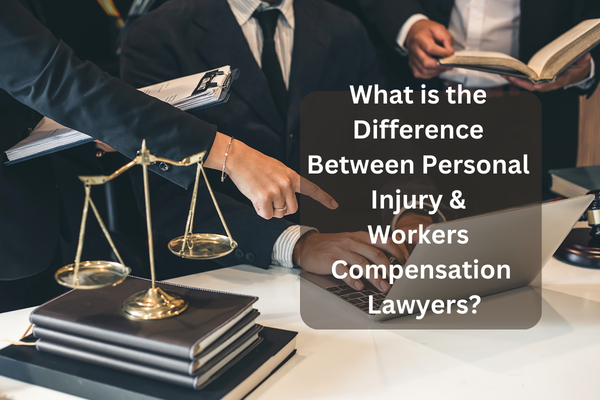The world of real estate can be quite complicated, with lots of rules and details that can confuse people who are buying or selling property. This is where a property lawyer steps in as your guiding light through the challenges of real estate transactions. In this comprehensive guide, we’ll explore the role of a property lawyer, the types of properties they deal with, where to find one, the benefits of hiring them, and what questions to ask when you do. Whether you’re a first-time homebuyer or an experienced real estate investor, this article will explain the importance of having a property lawyer by your side.
Who Is A Property Lawyer?
A property lawyer, also known as a real estate attorney, is a legal professional who specializes in matters related to real estate. These legal experts are well-versed in the intricacies of property law and play a crucial role in real estate transactions, property disputes, and various aspects of property ownership. Property lawyers are essential for ensuring that real estate transactions are legally sound and that their clients’ interests are protected. They are knowledgeable about local and national real estate laws and regulations, making them valuable partners for individuals, businesses, and investors involved in real estate ventures.
What Does A Property Lawyer Do?
Property lawyers wear many hats in the world of real estate. Here are some of their key responsibilities:
Document Review:
They meticulously review contracts, agreements, and other legal documents to ensure that your interests are protected. This includes scrutinizing real estate contracts for terms and conditions that safeguard your rights.
Closing Assistance:
During the closing process, property lawyers oversee the transfer of funds and the signing of legal documents. They ensure that all closing documents are correctly executed and funds are distributed appropriately.
Dispute Resolution:
In case of disputes or legal issues, property lawyers provide guidance and can represent you in court if necessary. They are experienced in real estate dispute resolution and can protect your rights in legal proceedings.
What Are Different Types of Property?
Real estate isn’t limited to just houses; it encompasses various property types:
Residential Properties:
Residential properties are homes where people live. They include single-family houses, apartments, condominiums (condos), and townhouses. These properties are designed for personal use and occupancy.
Commercial Properties:
Commercial properties are used for business purposes. They encompass office buildings, retail spaces, shopping centers, and warehouses. These properties generate income through rent or lease to businesses.
Industrial Properties:
Industrial properties are facilities designed for manufacturing, production, or storage purposes. This category includes factories, warehouses, distribution centers, and industrial parks.
Land:
Land refers to undeveloped or vacant properties without buildings or structures. It can be used for various purposes, such as agriculture, construction, or investment.
Investment Properties:
Investment properties are purchased primarily to generate rental income or achieve capital appreciation. These include rental homes, apartment buildings, and real estate portfolios managed for investment returns.
The Benefits of Hiring a Property Lawyer
Now, let’s delve into why having a property lawyer on your side is invaluable:
Legal Expertise:
Property lawyers possess in-depth knowledge of real estate laws and regulations, ensuring that your transactions are compliant with local and national legal standards. For example, they are well-versed in laws related to property transactions, such as real estate contract laws and property disclosure requirements.
Risk Mitigation:
They identify potential pitfalls and risks in transactions, protecting you from costly mistakes that can arise due to issues like zoning regulations or property boundary disputes. By addressing these risks proactively, property lawyers ensure a smoother transaction process.
Negotiation Skills:
Skilled negotiators, property lawyers can help you secure favorable terms and prices in your real estate deals. They use their knowledge of real estate negotiation strategies to protect your interests during negotiations with sellers, buyers, or other parties involved.
Title Assurance:
They verify property titles, ensuring you receive clear and marketable titles. This means they perform thorough title searches and inspections to confirm that there are no encumbrances, liens, or other issues that could affect your property ownership.
Peace of Mind:
With a property lawyer handling the legal aspects, you can focus on other aspects of your real estate transaction, such as financing or property inspections. This peace of mind is particularly valuable in complex transactions where legal issues can arise unexpectedly.
What Qualities to Look for in a Property Lawyer?
When seeking a quality property lawyer to assist you in real estate transactions, it’s essential to consider various factors to ensure you’re making the right choice. Here’s what to look for in a quality property lawyer:
Expertise in Real Estate Law:
A property lawyer should have in-depth knowledge and expertise in real estate law. They should be well-versed in local, state, and national property laws and regulations. This expertise ensures they can navigate complex legal issues that may arise during your transaction and provide you with accurate advice.
Local Knowledge and Experience:
Real estate practices and regulations can vary significantly from one location to another. It’s crucial to choose a property lawyer who is familiar with the local real estate market, customs, and legal intricacies. Local knowledge can expedite your transaction and help you avoid potential pitfalls.
Excellent Communication Skills:
Effective communication is essential in any legal matter. Your property lawyer should be a good listener, responsive to your questions and concerns, and able to convey complex legal concepts in plain language. Clear communication ensures that you understand the details of your transaction and can make informed decisions.
Problem-Solving Abilities:
Real estate transactions often encounter unexpected challenges. A quality property lawyer should possess strong problem-solving skills. They should be able to identify issues as they arise, propose viable legal solutions, and guide you through potential obstacles, ultimately ensuring a successful and stress-free transaction.
Transparency and Trustworthiness:
Trust is paramount in the lawyer-client relationship. Look for a property lawyer who is transparent about their fees, timelines, and potential risks associated with your transaction. A trustworthy lawyer prioritizes your best interests and provides you with honest advice, even if it means advising against a particular course of action.
Where Can You Find A Real Estate Lawyer Near You?
Finding a competent property lawyer is crucial. Here are some places to look:
Law Firms:
Most law firms have specialized real estate departments where you can find experienced property lawyers.
Bar Associations:
Local bar associations often maintain directories of lawyers, making it easier to find one near you.
Online Legal Directories:
Websites like the Indian Bar Association (IBA), Lawyersclubindia.com, PathLegal India, Legal India, Vakilsearch, and the Indian Lawyers Association (ILA). These platforms enable individuals to find legal professionals, law firms, and valuable legal resources across the country. provide listings of lawyers by practice area and location.
Recommendations:
Seek recommendations from friends, family, or real estate agents who have worked with property lawyers.
What Questions Should I Ask My Property Lawyer?
Before hiring a property lawyer, it’s essential to ask the right questions:
Experience:
Inquire about their experience with similar transactions.
Fees:
Understand their fee structure, including any hidden costs.
References:
Request references from past clients to gauge their reputation.
Communication:
Discuss how and when they will keep you updated on the progress of your case.
Approach to Issues:
Ask how they handle conflicts or unexpected issues that may arise during the transaction.
Timeline:
Get an estimated timeline for completing your transaction.
Conclusion
In the complex world of real estate, having a property lawyer by your side is not just a choice; it’s a necessity. Their expertise and guidance can make the difference between a seamless, secure deal and a legal challenge. So, whether you’re buying a dream home or venturing into real estate investments in Mumbai, remember that a property lawyer in Mumbai is essential for a prosperous real estate journey.





